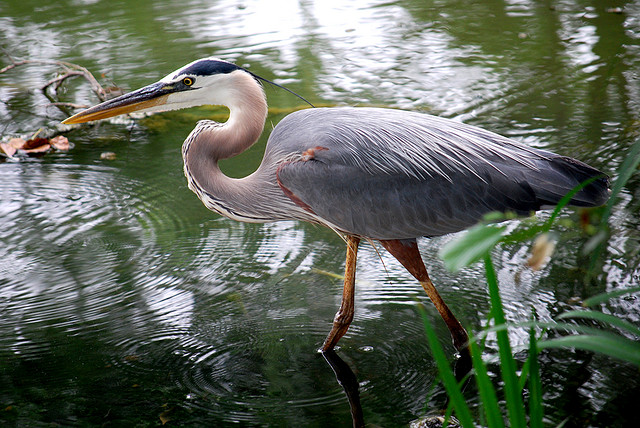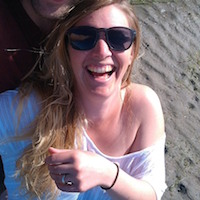I’m feeling a bit hypocritical.
Here I sit, writing a story of off-grid living on my tablet, hooked up to my wireless Internet on a remote island surrounded by the Pacific Ocean.
I’ve lived here nearly one year, in what can best be described as a northwest pacific paradise, where my neighbours include singing eagles, barking seals and the blows from resident orcas. It’s a privilege to be surrounded by such a natural community. It’s in a place like this we truly come to realize what a whole community really means and what challenges must be felt with to maintain balance and a quality life for every living creature. Yes, a healthy community to me includes my human neighbours, but more importantly, the non-human neighbours that have been the locals for generations.
My husband and I got married on this very island a year ago, at which point we made the decision to drastically change lifestyles for, very simply described as, living.
Living, in my experience, is taking responsibility for every life action.
We harvest rainwater as our only source for water, we rely on wood as our renewable resource to keep us warm and to cook our food, we garden, fish and bake as much as we can to sustain ourselves. We compost everything and the science behind how sustainable our life has become fills me with such pride and fulfillment I want to share this genuinely incredible accomplishment of living. Yet, here I am, on a tablet connected to the outside world feeling as though I may not be worthy of this accomplishment, unless it benefits my community.
Therein lies the beauty of off-grid living in today’s world—the ability to share my life experience with millions of humans from my natural environement.
How far we’ve come as a human society that I may live a life such as I do, but can use technology to share information with my wireless neighborhood.
When my husband and I made the decision to live life, rather than live a lifestyle, we were faced with an unexpected amount of skepticism and negativity. Friends and family came to the conclusion that we would not be able survive, that the weather and the challenges of being independent from “normal” life would make us “crack” and it would be only a matter of time before we would throw in the towel to come crawling back to society.
It’s hard when venturing on a path that not many others understand; it perpetuates criticism from others due to their own lack of understanding in turn making them feel fearful of the unknown.
“What do you mean you won’t be able to go out to restaurants and malls at the drop of a hat?”
“The winters are tough! You won’t make it.”
“What about the isolation?”
The criticism poured in. We faced bewilderment after explaining to them that we would create our restaurant from food sourced from right outside our door, we would create the goods from what we found around the island.
As for those winters? We happen to live in one of the few places in Canada where there is no snowfall. The temperature on our little island seldom drops below five degrees Celsius, and the few days it does, we simply light a fire and have a good blanket on hand to cozy up under.
It is the question of isolation that gets me a bit upset. It truly exemplifies today’s societal view towards our natural environment and the living creatures within it.
At no point have I ever felt isolated on this island.
Every single day we are graced with our neighbours’ presence—listening to the resident eagles that sing, watching them hunt,appreciating the stillness as they sit among the old growth stand of firs that surround our little cabin.
Blue herons love to hunt right in front of our house. They have even developed a symbiotic relationship with our dog who never chases the herons as he is far more interested in the activity from crab and fish. He wades through the water, but for fear of getting his ears wet, he inevitably drives the fish away from him directly into the heron’s hunting ground. If the hunting isn’t going as the heron planned, he flies overhead and squawks at my dog, just to move to his other flank, perhaps the new position will prove more bountiful.
There are days when, rather than being woken up by traffic or construction, we have been disturbed by hundreds of song birds jovial at the five a.m. sunrise. But it is the sound of blows from across the water remind us that our favorite neighbours are around. Witnessing pods of orcas, grey whales and humpback regularly coming by, allowing us to bear witness to their awesome existence, reassures me that this true life choice is one to be desired and embraced.
It is a constant reminder of the networks of nature that are inclusive of more than just humans and the existence of our species. It is when we see the whales, eagles, plethora of birds, fish and plant species that we realize we are living not only for ourselves but for our entire community.
As for our human neighbours, we know everyone on a first name basis.
We ask for help from each other when we need it, we offer our time to ensure the safety of our community through volunteer fire fighting and first responder efforts. We seek wisdom from our elders who have known about this way of life for more years than most. We all come from different walks of life with a variety of experiences that have shaped each and every one of us into the people we are today.
For how different we all are, we all believe in the power of embracing a whole and diverse community inclusive of nature and the plants and animals within that community. We are living proof that sustainable living is not a lifestyle, it is embracing life at it’s purest form. Life and community are one and of itself.
I am so elated to know how incredibly diverse and unique my community of people, plants, animals and everything in between is—it is truly an off-grid life for me.
Relephant:
What Does It Mean to “Live Off the Grid?”
Author: Sarah Skogland
Volunteer Editor: Kim Haas / Editor: Renee Picard
Image: spisharam / Flickr












Read 4 comments and reply